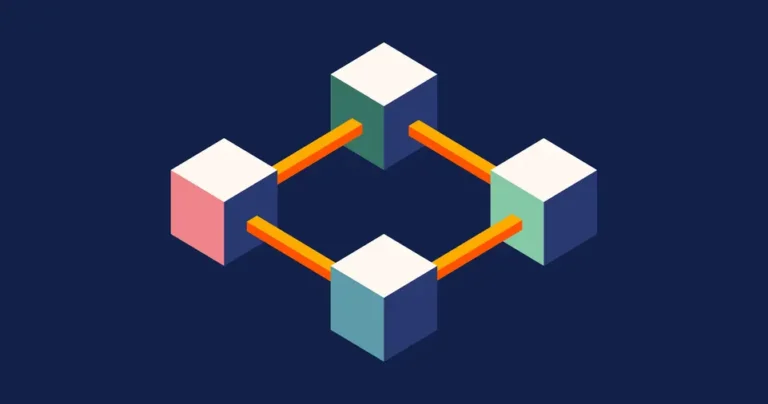Blockchain technology has evolved from its origins in cryptocurrency to become a transformative tool for businesses across industries.
Whether you’re in supply chain management, healthcare, finance, or gaming, blockchain offers a decentralized, transparent, and secure way to manage transactions and data.
However, with numerous blockchain platforms available, each with its unique features and strengths, choosing the right one for your business can be daunting.
This guide will walk you through the critical factors to consider when selecting a blockchain platform, including your business needs, scalability requirements, cost considerations, and more.
We’ll also explore popular platforms such as Ethereum, Solana, Hyperledger, and Binance Smart Chain, helping you understand their strengths and applications.
By the end of this guide, you’ll have a clear roadmap for making an informed decision that aligns with your goals and ensures long-term success.
Let’s delve deeper into how blockchain platforms differ and how you can identify the one that best suits your business needs.
Understanding Your Business Needs
Public vs. Private Blockchain
One of the first decisions you need to make is whether your business requires a public blockchain, a private blockchain, or a hybrid approach. Each type has distinct advantages and limitations.
Public Blockchain
Public blockchains like Ethereum, Bitcoin, and Solana are fully decentralized. They allow anyone to participate in the network as a user or validator.
This openness ensures high transparency, making public blockchains ideal for projects like decentralized finance (DeFi), non-fungible tokens (NFTs), and applications requiring verifiable trust without a central authority.
However, public blockchains often face challenges with scalability and transaction costs.
For instance, Ethereum, while highly versatile and robust, has been criticized for its high gas fees during periods of network congestion.
Key Use Cases:
- DeFi platforms.
- NFT marketplaces.
- Transparent voting systems.
Private Blockchain
Private blockchains, such as Hyperledger Fabric and Corda, operate with restricted access.
They are best suited for enterprises that require higher privacy and control over their data.
Private blockchains are often used in industries like healthcare and supply chain management, where sensitive information needs to be shared securely among a defined group of participants.
Unlike public blockchains, private networks are not fully decentralized.
While this can reduce transparency, it enhances efficiency and regulatory compliance, which is critical for businesses dealing with sensitive data.
Key Use Cases:
- Secure data sharing among stakeholders.
- Financial transaction tracking within a closed network.
- Healthcare data interoperability.
Hybrid Blockchain
A hybrid blockchain combines features of both public and private systems.
Platforms like Polygon and Avalanche offer hybrid solutions, enabling businesses to enjoy the transparency of a public blockchain while keeping sensitive operations private.
Key Use Cases:
- Cross-chain solutions.
- Scalable dApps requiring public and private elements.
Evaluating Scalability

Scalability is crucial if you plan to grow your blockchain-powered business.
The platform you choose should handle increased transaction volumes without compromising performance.
Transaction Speed and Throughput
Different blockchain platforms vary significantly in their transaction speed, often measured in transactions per second (TPS).
For instance:
- Solana: Known for its blazing-fast speeds, Solana can process over 65,000 TPS, making it ideal for high-frequency trading or gaming applications.
- Ethereum: Ethereum 2.0 has improved its scalability with the transition to Proof of Stake (PoS), yet it still relies on Layer 2 solutions like Arbitrum or Optimism to handle higher transaction volumes.
When evaluating platforms, ask whether the blockchain can scale horizontally (adding more nodes) or vertically (enhancing node capacity). This flexibility ensures your platform can grow with your business.
Future Growth and Compatibility
Look for platforms that embrace modular architecture or allow interoperability with other blockchains.
Systems like Polkadot and Cosmos are designed for multi-chain ecosystems, enabling seamless communication between blockchains.
This interoperability is particularly important for businesses aiming to integrate with multiple networks.
Ensuring Security and Compliance
Consensus Mechanisms and Their Role
Blockchain platforms rely on consensus mechanisms to validate transactions and maintain security.
Choosing the right consensus mechanism depends on your security needs, energy efficiency goals, and user base size.
Proof of Work (PoW)
PoW, used by Bitcoin, is one of the most secure consensus mechanisms. However, it is energy-intensive, which has drawn criticism from environmental advocates.
Businesses prioritizing sustainability may prefer alternatives.
Proof of Stake (PoS)
PoS mechanisms, as implemented in Ethereum 2.0 and Cardano, require validators to stake tokens instead of performing energy-intensive calculations.
This approach is faster, more sustainable, and cheaper to maintain than PoW.
Delegated Proof of Stake (DPoS)
Platforms like EOS use DPoS, where a small group of elected nodes validates transactions.
This method is efficient but less decentralized, making it suitable for businesses that don’t prioritize full decentralization.
Regulatory Compliance
If your industry is highly regulated, choosing a platform that supports compliance is critical.
Platforms like Hyperledger Fabric are often favored in industries like finance and healthcare for their permissioned nature, allowing businesses to implement Know Your Customer (KYC) and other regulatory requirements seamlessly.
Cost Considerations

Blockchain costs can quickly add up, making it essential to assess both development costs and operational expenses.
Transaction Fees
Some blockchains are notorious for high transaction fees.
For example:
- Ethereum: Offers robust smart contract functionality but often incurs high gas fees.
- Binance Smart Chain (BSC): Provides a cost-effective alternative, with much lower fees and Ethereum compatibility.
Choose a platform with predictable fee structures that align with your transaction volume and budget.
Development Costs and Talent Availability
The programming language and tools available for a blockchain platform affect development costs.
Platforms like Solana use Rust, which may require specialized developers, while Ethereum uses Solidity, a widely supported language with an extensive developer community.
Smart Contract Functionality
Importance of Smart Contracts
Smart contracts are self-executing contracts with predefined rules. They automate processes, reduce intermediaries, and enhance efficiency.
However, not all platforms offer the same level of flexibility in their smart contract capabilities.
Ethereum
Ethereum pioneered smart contracts and remains the most popular platform for decentralized applications (dApps).
Its ecosystem includes DeFi protocols like Uniswap and NFT marketplaces like OpenSea.
Alternative Platforms
- Cardano: Focuses on academic rigor and offers scalability and security for complex smart contracts.
- Polkadot: Provides customizable smart contract solutions for multi-chain ecosystems.
Exploring Popular Blockchain Platforms

Let’s take a closer look at some leading blockchain platforms and their strengths:
Ethereum
- Strengths: Largest ecosystem, established security, active developer community.
- Use Cases: DeFi, NFTs, and enterprise-grade dApps.
Binance Smart Chain
- Strengths: Low transaction fees, compatibility with Ethereum tools.
- Use Cases: Affordable DeFi solutions, gaming, and payments.
Hyperledger Fabric
- Strengths: Permissioned and highly secure for enterprise applications.
- Use Cases: Supply chain, finance, and healthcare solutions.
Testing and Prototyping
Importance of Testnets
Before committing to a blockchain platform, use testnets to prototype your application.
Testnets allow you to simulate real-world conditions and evaluate performance, security, and user experience without incurring significant costs.
ALSO READ: How to Understand the Basics of Blockchain Technology
Conclusion
Choosing the right blockchain platform is a complex but critical decision.
By evaluating your business needs, scalability requirements, security, costs, and smart contract functionality, you can identify a platform that aligns with your goals.
Popular platforms like Ethereum, Solana, and Hyperledger each offer unique advantages tailored to different industries.
Take the time to research, test, and consult with experts to ensure your blockchain solution supports your long-term success.
Stay informed, experiment wisely, and embrace the transformative potential of blockchain technology in your business journey.











